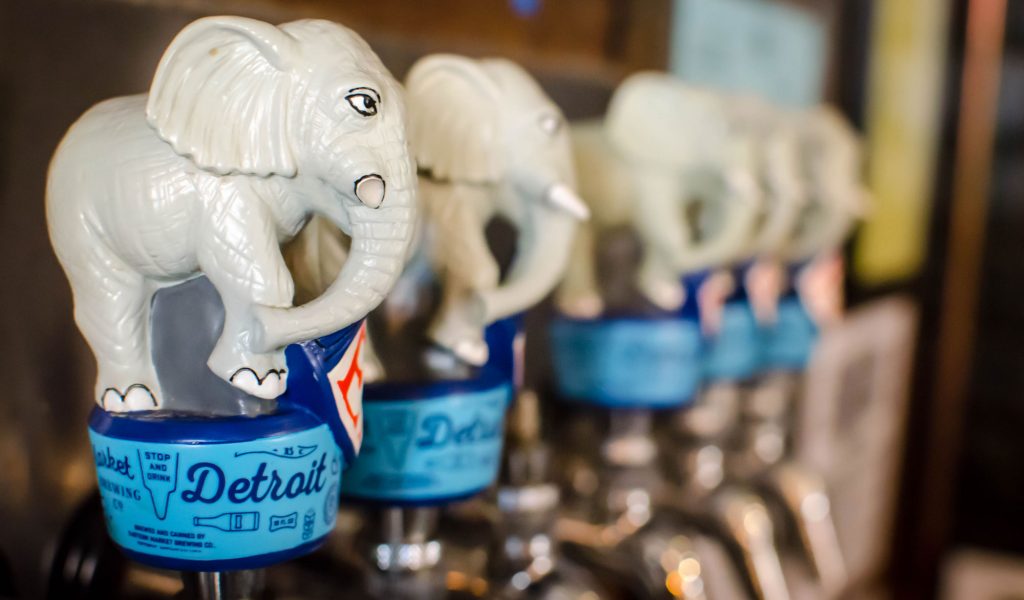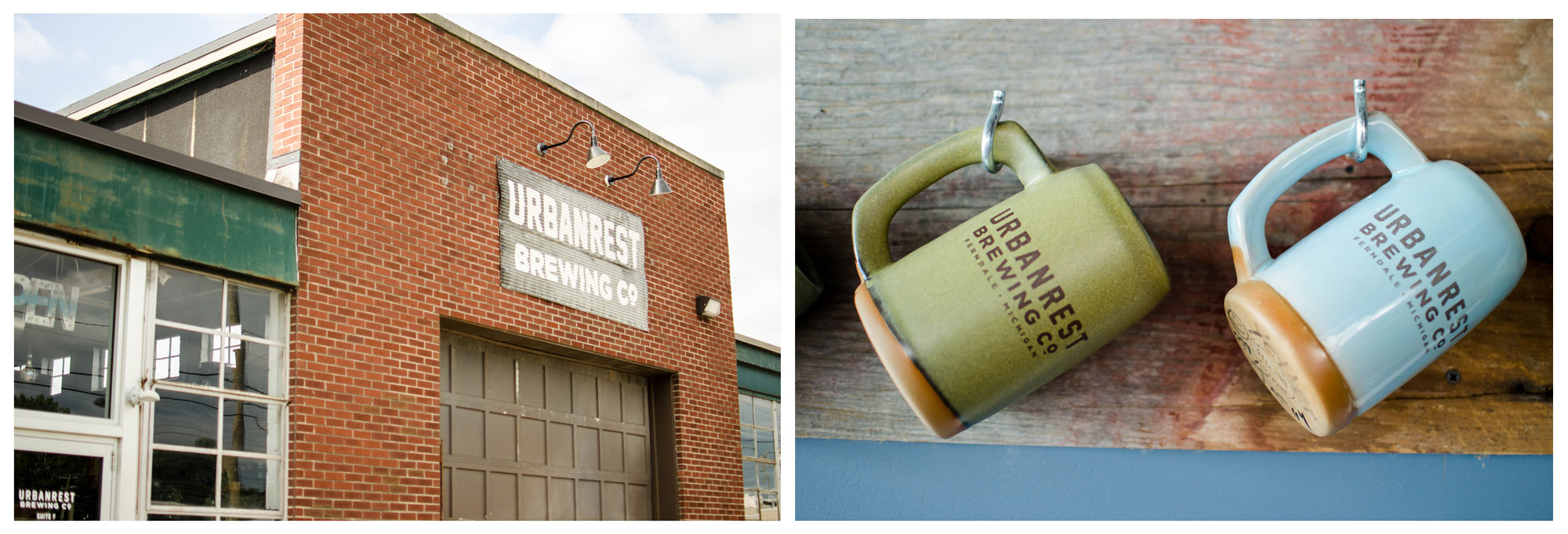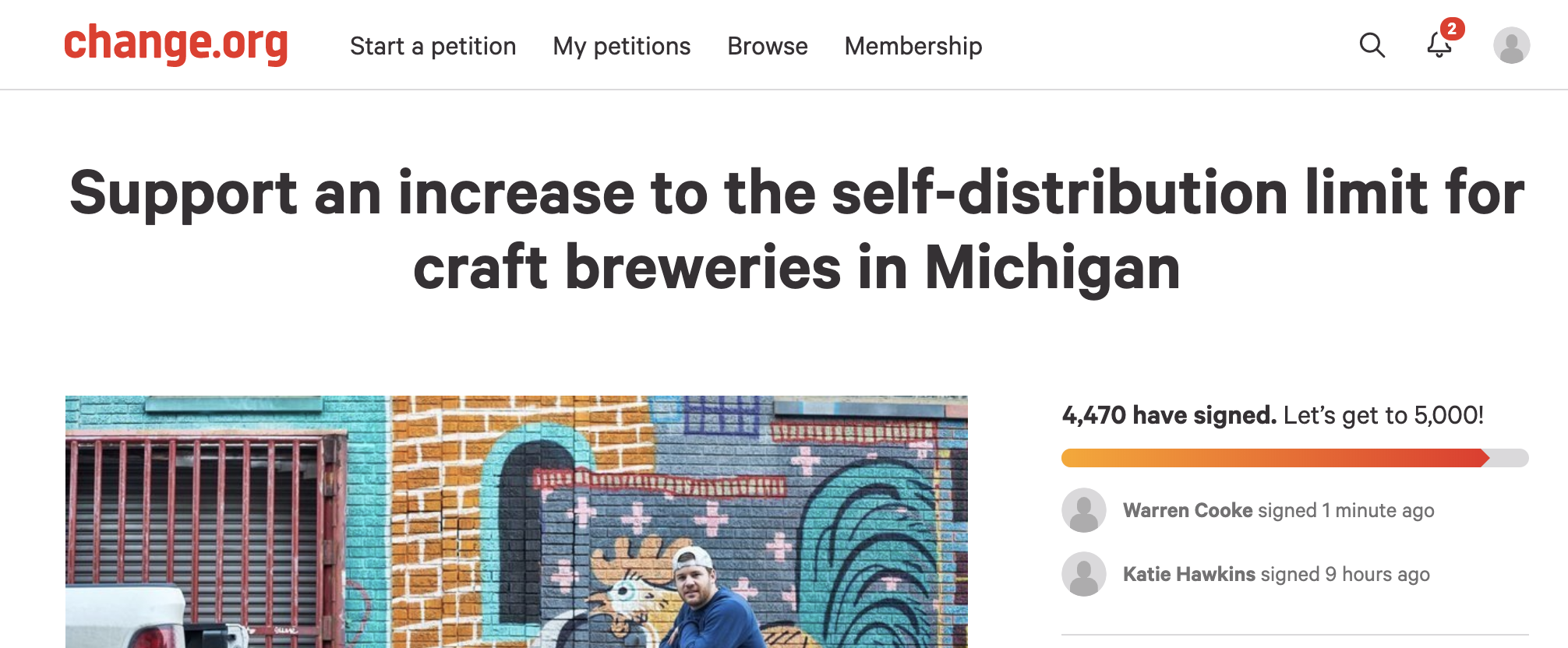Michigan Microbrewers Want to Sell Their Own Beer Statewide. Got a Problem With That?
Eastern Market Brewing Co. is lobbying to change regulations that require them to pay a distributor for all beer sales after producing 1,000 barrels. But it’s a long road from a petition to Lansing.


There’s a battle brewing when it comes to the state’s beer regulations — and it’s not a pint-sized problem.
In Michigan, brewers can only sell their beer to bars and retailers if they produce fewer than 1,000 barrels in a calendar year. After that threshold, they need to sign a contract with a distributor.
In Ohio, for comparison, state regulations allow brewers to self-distribute until they hit 100,000 barrels.
Michigan’s regulation “leads to pretty tough decisions early on for small breweries like us,” says Dayne Barscht, managing partner of Eastern Market Brewing Company, a microbrewery located behind Shed 2 in the popular market. “A lot of breweries focus on tap room sales or they will sign with a distributor early on in the process.”
Click on the player above to hear an audio version of this story.
Bartscht says a distributor could demand 30 to 40 percent of revenue, a prohibitive figure for his business. He has posted a Change.org petition advocating to raise that 1,000-barrel cap to 30,000 barrels – allowing breweries to sell their own beer to bars and stores for longer.
But it’s not just the cost. For some small breweries, the product needs a personal advocate when approaching potential retailers.
“It needs to be hand-sold,” says Zach Typinski, founder of Urbanrest in Ferndale. “The story needs to be told. You know distributors [don’t] have enough sales people to tell those individual stories.”

A $10 billion industry — and state pride
Bartscht’s petition has garnered some support, over 4,400 signatures at publish time. But change could come slow to an industry that Michiganders consider part of the state identity, one that brings in $10 billion a year to boot.
“We’re incredibly proud of our craft beer industry, so it’s definitely something worth taking a look at,” says Mallory McMorrow, a state senator from Royal Oak.
“We want to be able to build that network and then hand it off to a distributor when it has value, as opposed to signing an agreement before we’ve actually built anything.” — Shamus Cook, sales director at Eastern Market Brewing
The wholesalers, however, are happy with the current system.
When reached by WDET, Spencer Nevins, president of the Michigan Beer and Wine Wholesalers Association, released a statement through a public relations firm citing how “craft beer production in Michigan was up 10% last year at a time when craft beer production declined across the country. There’s no doubt our rules and regulations have helped make Michigan the Great Beer State it is today.”
Some of the resistance may come from industry customs dating back to the 1920’s Prohibition Era.

“The concept of this hyper-local neighborhood brewery existed, then it disappeared,” says Dan Riley of Axle Brewing in Ferndale, a local brewery that recently shut its doors. “And then after Prohibition ended, there was a concern that there would only be a couple major, major players. And essentially what has ended up happening, is wholesalers have more control of the marketplace than even large brewing brands.”
Riley took over the established brand in 2014, and cites a pre-existing distribution deal as one factor that prevented him from turning a profit.
“In the future, we could see ourselves using a distributor,” says Shamus Cook, the sales director at Eastern Market Brewing. “But we want to be able to build that network and then hand it off to a distributor when it has value, as opposed to signing an agreement before we’ve actually built anything.”
Meanwhile in Kalamazoo

The wild card in any conversation around state regulations for breweries is the larger, more-established brands that helped pioneer local brews, namely Bell’s Brewery in Kalamazoo and Founders Brewing Co. in Grand Rapids.
In 1992, Larry Bell, founder of Bell’s and considered the dean of brewers in the state, helped work out a change to the state’s regulations so he could sell beer from his Kalamazoo taproom. A Prohibition-era law denied the practice. He was a self-distributor — early on.
“I’m one of the guys who traded away the right for self-distribution for the right for us to sell beer by the glass,” says Bell.
But on the petition, he’s more circumspect.
“I’m going to reserve any thought until there’s an actual bill that’s introduced,” he says. “I think this is pretty speculative at this point to even think about.”
Indeed, it is early. And for a change to state law like this, a public petition seems almost quaint. But for Eastern Market Brewing’s Bartscht, the 1,000-barrel threshold is an issue that at times seems farcical.
“There’s a big beer festival in Eastern Market that’s two blocks from our brewery,” Barscht says. “If we were to hit the 1,000-barrel mark we would actually have to sign on with a distributor to deliver our beer two blocks to the beer festival based on the current laws.”
